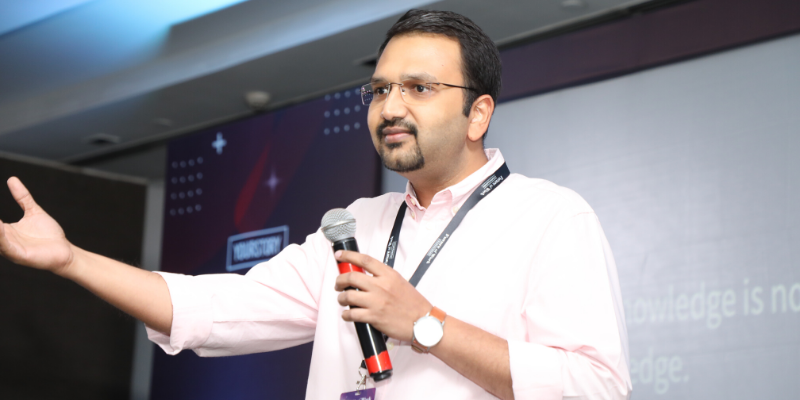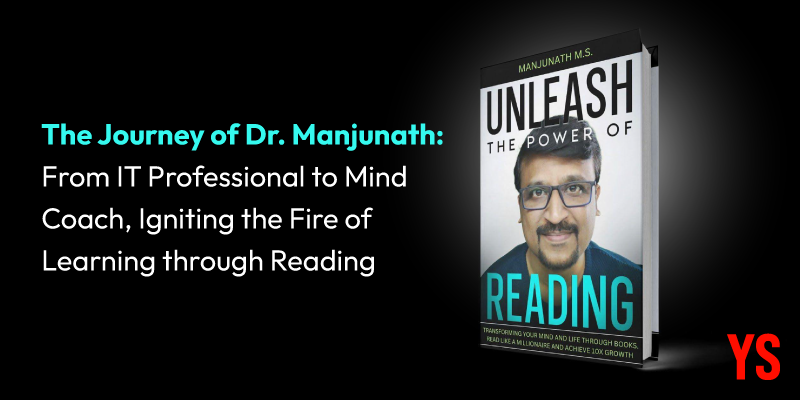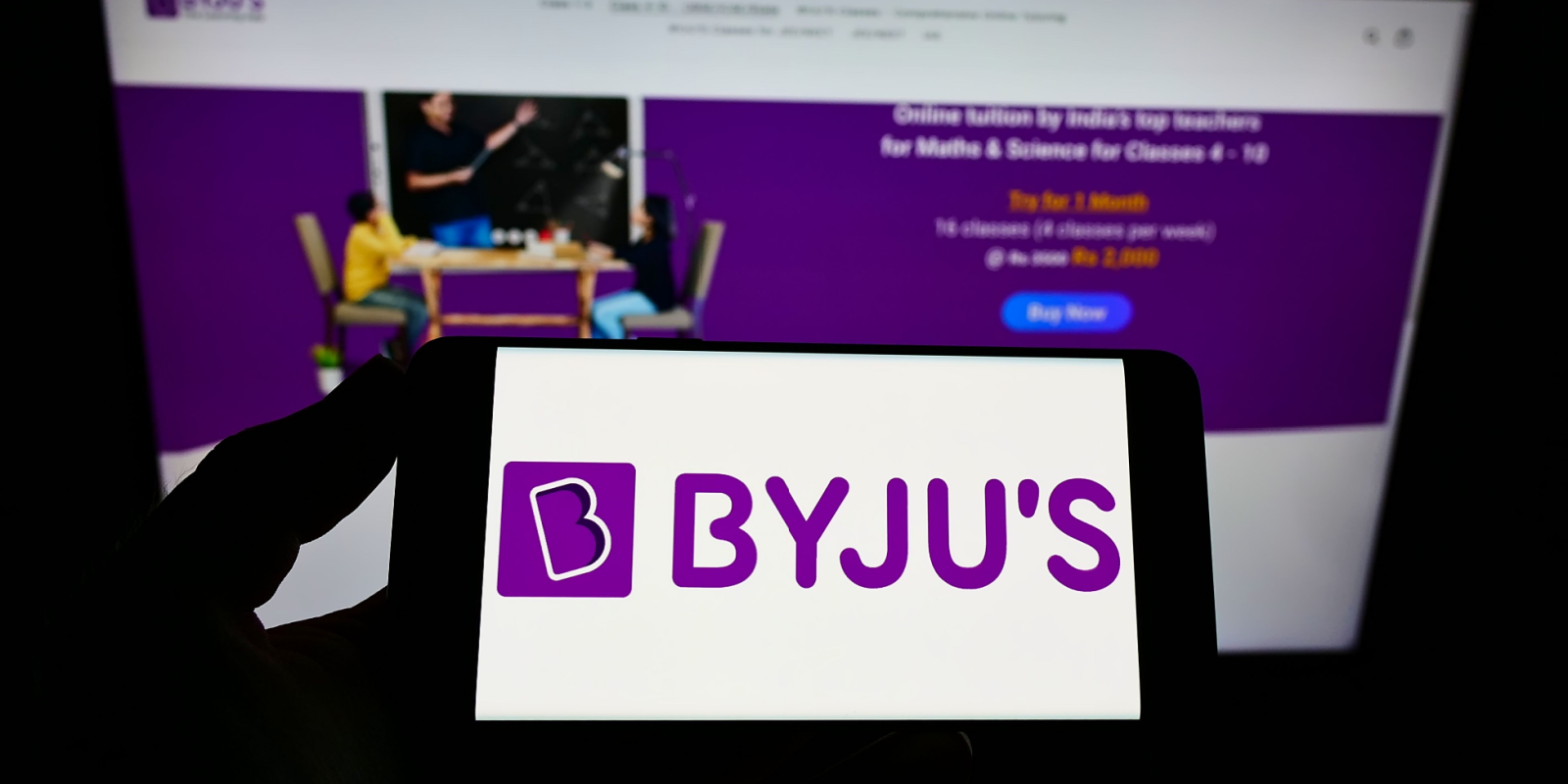Future of Work: How to build a culture of data-led decisions, explains Bounce’s Aditya Jalan
At YourStory’s Future of Work 2020 conference, Aditya Jalan, VP, Products, Bounce, spoke about the impact of building a culture of data-led decisions in companies across sectors.
For , one of India’s leading urban mobility startups, data is the key to mapping points, such as, where vehicles are dropped off and which spots provide the last-mile connectivity. Every decision is driven by data for precision.
Aditya Jalan, VP, Products at Bounce, on Saturday, spoke in detail about how organisations can integrate data-driven decision-making into their cultural fabric. He was speaking at the third edition of YourStory's Future of Work, India's largest product-design-tech conference.
Before Bounce, Aditya, worked in the consumer internet space for over a decade. He was a part of , Myntra, and early stage gaming startup, . He joined Bounce, a mobility solutions startup, that aims to make daily commute stress free, in 2018.

“I have been fortunate to see organisations play out and revolutionise through multiple perspectives, and I want to share with you what I’ve learned through this journey, which is what not to do. I have worked amongst some of the smartest people, yet made my fair share of mistakes,” Aditya said.
Data, the omnipresent sunlight
Essentially when we talk about data, we talk about what first comes to mind, or what we think we know about data without actually knowing, Aditya told the audience.
“Data shines light on these conversations because when we talk about data, we talk about how good things happen in sunlight, data is essentially that sunlight which helps us grow.”
He highlighted that it is data that helps us see the bigger picture, helps every engineer, and everyone else in a team to learn how to connect the dots. It is what makes them question and ask themselves ‘if this is what I am doing, how will it largely impact the future of the company?’

It is the backbone when it comes to goal setting because it makes people understand what they are working towards, he said. “It improves the quality of decision-making. If done correctly, data builds the culture of ownership.”
Aditya reiterated that one should not be “selling data” and how when it comes to data, “one doesn’t need any adjectives.”
“Data is something that should sell itself, good or bad, it tells its own story.”
How to use data for informed product development
When it comes to using data in the real world, it is not as challenging as one might imagine, he said.
Aditya advised the audience that when they first start building a product, they should not let project managers, designers or anyone else in the team sway them. Being intuitive when it comes to data and having that ‘Spidey sense’ is everything in a work culture, he said. ‘Spidey sense’ is a term derived from the comic book superhero Spiderman, and is generally used to mean a vague but strong sense of something being wrong,
“How many of us have built a culture where data is used to improve and not prove and disprove?” he asked.
Data should be used as a tool to improve the quality of decision-making and not be seen as an end goal or as a standalone thing, he stressed.
“If you torture data enough it will eventually say what you want it to say.” Aditya pointed out. Data is not a hypothesis or something we need to prove, he said. There will be assumptions along the way when coming up with an idea or hypothesis, however we need to go back and recalibrate those assumptions, Aditya added.
“Data is that sunlight, but it needs to come from within you, whether you are a PM, a founder, an engineer, or a designer. You can’t decide when it is convenient for you”

Where it goes wrong
People often tend to go wrong with data-led decisions, especially when they launch a new product or business without thinking about the metrics thoroughly, Aditya warned.
“If you have not thought through the instrumentation, what are we going to capture? How are we going to capture it? Then you need to question yourself.”
It is important to first figure out the long-term goal when building a product and then work backwards to it, he said.
“Think about the problem you want to solve first, and how you are going to go about solving it, before building the feature. It is very important that you start with the data itself.”
How to get the ‘Spidey sense’
One does not need to “do a Coursera course or go to business school” to figure out how to work with data, it is about common sense and trusting your intuition, Aditya said.
Elaborating this further, he said, it is almost like doing a mathematics calculation, where the formula is right there in front of you. There is an input, output and a solution.
“The problem with us is that we are extremely myopic and self absorbed, in a way that we want to stick to set patterns of behaviour and stay within our comfort zone. One needs to constantly break out of that, because we like seeing things through tinted spectacles, that make us feel good.”
Aditya wrapped up his talk with a couple of tips for the audience:
1. We do things that prove our favourite hypothesis further. While it takes a lot to resist temptation, we should resist this urge.
2. Never get fooled by aggregate metrics, like mediums and averages. Try to understand distributions, percentiles, and visually plot data and you will definitely develop a more intuitive sense.
“Do this over time and you will surely get that ‘Spidey sense’. You’ll soon get a shape and idea of what data looks like, so the next day, if you see something wrong in your team or company, you will know it’s off,” Aditya signed off.
(Edited by Ramarko Sengupta)
A big shout out to our Future of Work 2020 Sponsors: Alibaba Cloud, Larksuite, Vodafone Idea Limited, Gojek, Adobe, , , , , , , Maharashtra State Innovation Society, and GetToWork; and our Knowledge Partner: Ascend Harvard Business Review.














![[Startup Bharat] This Goa startup has developed a platform to solve urban civic issues](https://images.yourstory.com/cs/2/a9efa9c02dd911e9adc52d913c55075e/startup800x400-1585660120136.png)

